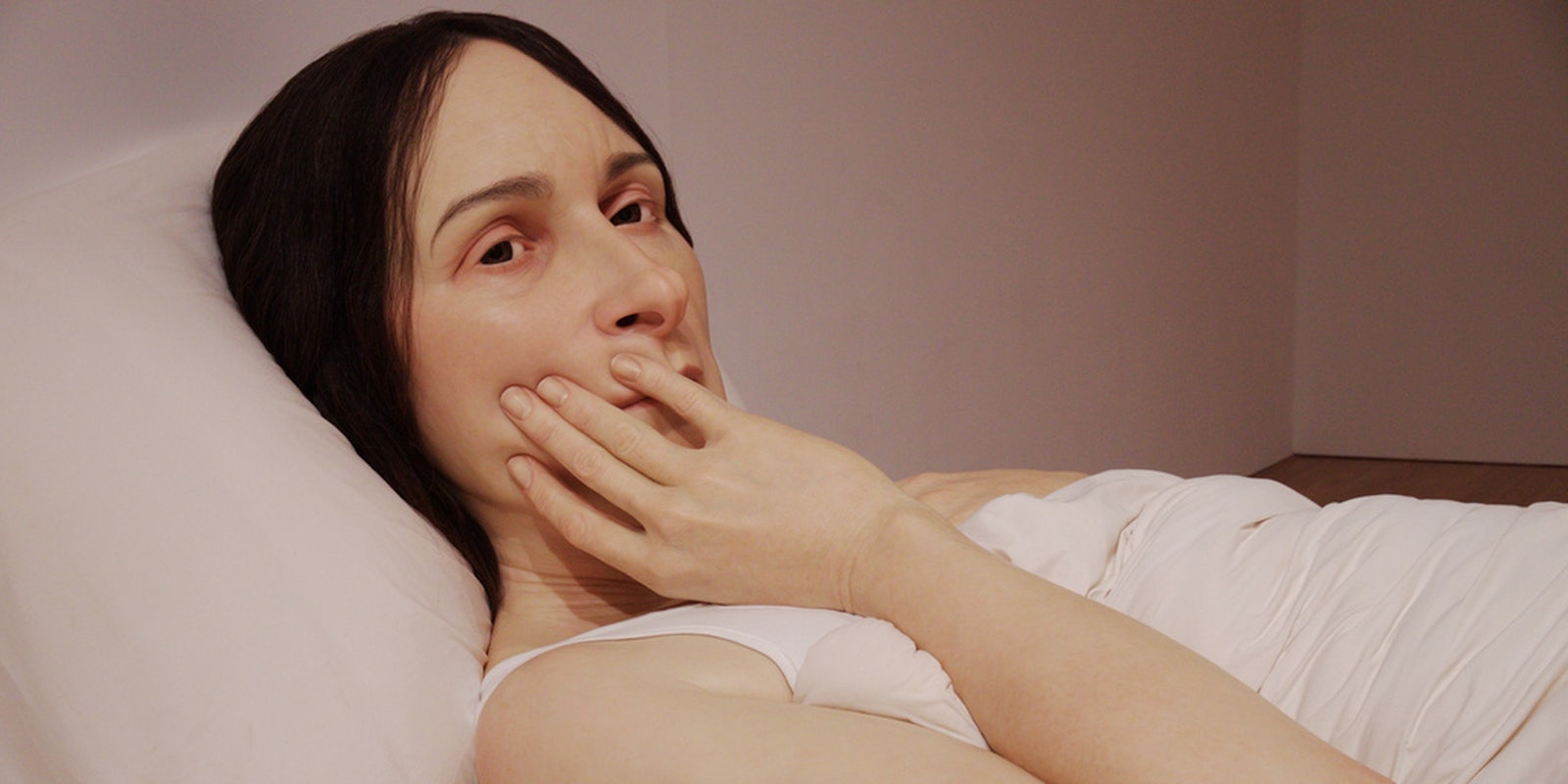If you’ve seen Sleeper, you’ve probably secretly wished you could own an orgasmatron, the giant, fictional, shower-like machine that gives users an interminable series of shrieking orgasms. While there are unfortunately no patents for such a device on the horizon, we may soon be getting the next best thing: a surgical implant for women who have anorgasmia, or an inability to achieve orgasms.
Developed by North Carolina surgeon Stuart Meloy, the implant sends electrical impulses along patients’ spinal cords, stimulating nerves that trigger orgasm. The patient can control the stimulation via a remote control, allowing women to have orgasms literally at the push of a button. A patent has been filed for the device, and clinical trials will start later this year in Minneapolis.
Of course, the prospect of having electrodes implanted in your spinal cord sounds a bit harrowing, to say the least. Moreover, Meloy says the patient must be awake during the procedure, so the surgeon can find the best position for the electrodes. But Jim Pfaus, who studies the neurobiology of sexual behavior at Concordia University, is confident that women will sign up for the procedure nonetheless: “If young women of 15 or so are having painful operations to enlarge their breasts when they don’t have to, are you kidding? Of course it’ll be used,” he told New Scientist.
Although anorgasmia sounds a bit like a ‘90s low-budget horror movie, it’s actually a pretty common problem: 43 percent of women and 31 percent of men report having difficulty reaching orgasm, with as many as 10 to 15 percent of women reporting they’ve never reached climax at all. While anorgasmia can often be attributed to a range of physiological causes, such as the usage of SSRI anti-depressants, often the cause is psychological, which makes it exceptionally difficult to treat.
The Frankenstein-esque method of implantation aside, an orgasm-inducing machine is a pretty uniformly positive development, and would probably change many women’s lives for the better. What such a machine wouldn’t change, however, is people’s general attitudes toward women’s sexuality, as seen in this Reddit headline on the implant in r/technology, which refers to the women “whose lives have been blighted” by their inability to achieve orgasm.
Orgasms are incredible, wonderful things, and it’s certainly true that the inability to regularly achieve them would be incredibly frustrating, to say the least, for most women. Most, but not all: Consider asexual women, for instance, although whoever wrote that Reddit headline sure as hell didn’t.
But to refer to a woman who is unable to reach orgasm “naturally” (i.e., presumably with a partner) as “blighted” is doing that woman an enormous disservice. For one thing, as any woman will tell you, sex doesn’t necessarily have to end in orgasm to be good, and it doesn’t necessarily have to be good to end in orgasm. The conception that orgasms are the be-all and end-all of female sexuality is misguided, outdated and immensely frustrating, both to women who have screaming Os around the clock and to women who don’t have that luxury. A machine that helps women achieve orgasm is a godsend to those women who have suffered as a result of their inability to have them, but if we actually want to progress in our understanding of female sexuality, we also have to consider the women who don’t care much about orgasms at all.
H/T New Scientist | Photo by Degilbo/Flickr (CC BY NC – ND 2.0)


